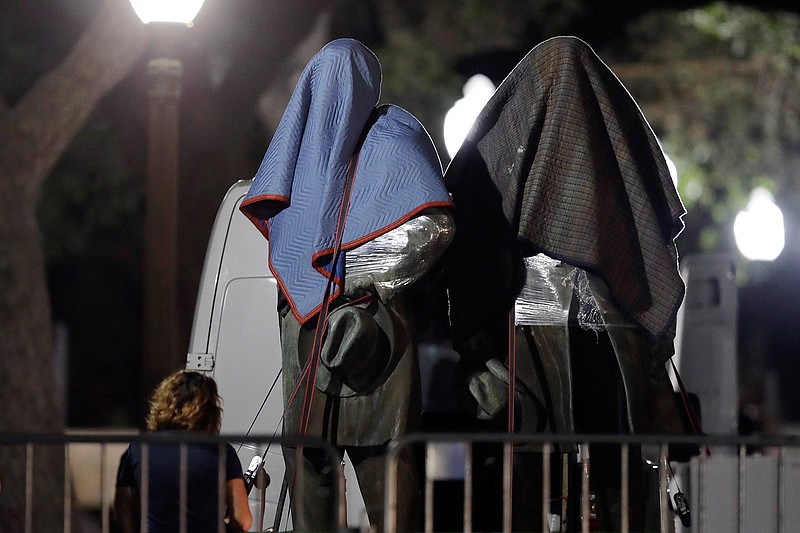AUSTIN - A federal court of appeals heard arguments in a lawsuit challenging the University of Texas' removal of three Confederate statues from campus two years ago.
The Texas chapter of the Sons of Confederate Veterans sued the school after it removed the statues of Robert E. Lee, Albert Sidney Johnston and John Reagan after a white supremacist drove into a crowd of counter-protesters in Charlottesville, Virginia, killing a woman and injuring 19 other people. At the time, the university's president called such monuments "symbols of modern white supremacy and
neo-Nazism."
The lawyer for plaintiffs David McMahon and Steven Littlefield, who belong to the group made up of male descendants of Confederate soldiers, argued Tuesday before the 5th U.S. Circuit Court of Appeals that the removal of the statues amounted to a violation of their free speech rights and breached an agreement the school made with Maj. George Washington Littlefield, who donated the statues in 1921.

